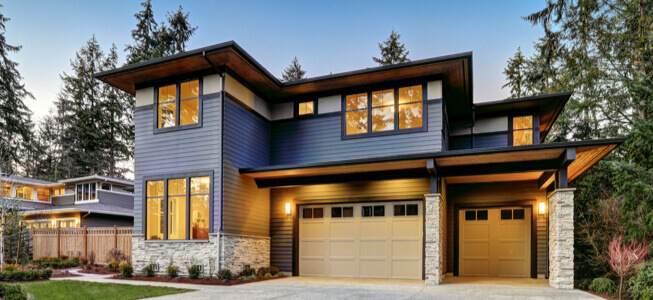I am at the age now where most of my close friends are settling down and looking into buying their first home. Because of my background as a Chartered Accountant in Toronto -I am often approached with the question of whether to choose a variable or fixed rate mortgage? In order for someone to make the best decision, they must first understand the difference between a variable and fixed rate mortgage.
Variable Rate Mortgage – A mortgage where you face the risk of your mortgage payments increasing or decreasing as the interest rate applied is variable and dependant on the base lending rates (usually the prime rate of interest). Thus, if the base lending rates decrease, then your total mortgage payment may also decrease (or result in a shorter amortization period). Conversely, if base lending rates increase, than your total mortgage payment should also increase (or result in a longer amortization period).
Fixed Rate Mortgage– In a fixed rate mortgage, the interest rate charged is held constant for a specific term (ranging from 1-20 years) providing for consistent mortgage payments for the fixed term. Thus, if the base lending rate goes up or down- your mortgage payment will still be held constant.

Determining whether to go with fixed or variable rate mortgage really depends on many factors. Some common questions you should be asking yourself are as follows:
1) Can you live with the risk of interest rates increasing? If you decide to go with a variable rate mortgage, while they may appear to be cheaper, you will have to deal with the risk of interest rates rising and thus a higher mortgage payment or an increased amortization period should they do so. This can lead to many sleepless nights if you do not handle risk or stress well. However, even if the interest rates do rise, most banks usually offer the choice to change over to a fixed rate mortgage. The rate is typically much higher than the current variable rate you are paying and it may end up being more expensive as well.
2) Is the peace of mind of a fixed rate mortgage worth the additional financial burden? In some situations, the interest paid on fixed rate mortgages can double that paid on a variable rate mortgage and it may take a homeowner longer to pay down the mortgage. However, for some a fixed rate mortgages adds a sense of security and gives the homeowner consistent mortgage payments making it worth paying a premium for a less stressful life.
Regardless, whether you are risk-averse or a risk-taker, there are few pieces of advice that I would like to leave you with. Firstly, banks are a business and they are in the business of making money through collecting fees, interest and other mechanisms. Thus, be sure to shop around for a competitive mortgage rate, whether it be fixed or variable, and be prepared to negotiate to land on a rate that you are comfortable with.
Secondly, peace of mind is extremely important as it can affect your personal health. Thus, don’t kid yourself. If you really are not a risk tolerant person, don’t lean towards a variable rate just because you think you are saving money. A mortgage is a big ticket item and something you have to live with for a very long time (on average about 25 years), thus if paying an extra amount each month gives you mental sanity- trust me, it is worth it.
Lastly, choose a mortgage broker that you are comfortable with and someone that properly explains you the facts and more importantly the fine print. A good mortgage broker should answer all of your questions, never pressure you into a particular type of mortgage and should be patient with you until you decide what the best option for you really is.
As a closing thought, a mortgage is a significant lifelong commitment for us all so be sure to get well educated and informed before making any significant decision.
About the Author: Rishabh Khamesra is a Chartered Accountant in Toronto and partner at SRJ Chartered Accountants. Please contact him at rishabh.khamesra@srjca.com for any more information.
